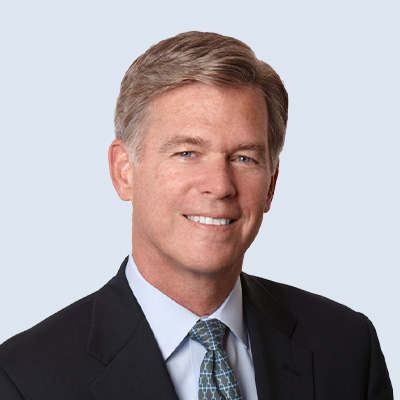Gary Tubridy: Hello, Gary Tubridy here, principal of the Alexander Group. In 2022, Alexander Group will be exploring the tenets of enduring leadership, the attributes of great companies that enable their leaders to make decisions in the context of years, even decades, instead of just quarter to quarter. These tenets have four overarching categories. The first of these is how they describe their mission. Of course, great companies speak to the need for growth and profit, but their missions tend to be more expansive than that and often aim to deliver something of great value to their customers, their employees, perhaps even the world.
With me today to chat about their mission statement is Deb Cupp, president of North America at Microsoft, who delivered a keynote address on this very topic at the 2022 Women Revenue Leaders Forum. A mission that is bigger than profit. Microsoft’s mission is to empower every person and every organization on the planet to achieve more. Well, that certainly achieves the standard of something bigger and better than profit and growth. Tell me more about how Microsoft makes this mission clear to their employees and the world.
Deb Cupp: We share our mission everywhere, so it’s something we talk about internally in every event we have. Satya Nadella starts every one of his exec staff meetings by putting our mission up. We talk about it with our customers, with our employees. It’s deep, it’s part of what we do. So I think for us, it’s about repeating it everywhere all the time so it has meaning to everybody involved.
Gary Tubridy: Your keynote topic, Mission to Mindset, has a great title there. It certainly means that mission statements are more than window dressing for the annual report. Tell me about the tools you leverage to turn your mission to mindset and ultimately into behavior.
Deb Cupp: It all comes down for us to thinking about our values, and we talk about respect. We talk about integrity. We talk about accountability. We also talk about our leadership principles, which we think are super important, and that’s really about how do we create clarity for our teams? How do they know what they need to go do? How do we generate energy when we’re describing where we want to go and what our north star is? And how do we continue to deliver success? Everything is rooted around back to that point of accountability and making sure that we’re delivering on all the things that we talk about and how do we do that? It’s really around our expectations of our managers, and we bottle something we call model, coach, care, and that’s about modeling the behavior that we want to see every day. It’s about coaching our teams to help them do the best that they can on behalf of our customers. And it’s always about making sure that we care.
Gary Tubridy: Deb, in your keynote, you describe three attributes of the growth mindset: customer obsessed, one Microsoft and diverse and inclusive. Viewed as a whole, it means everyone on the team needs to see a bigger picture than what’s articulated in the compensation plan. Tell me about the important steps that Microsoft takes to help their employees see the bigger picture.
Deb Cupp: It’s really rooted in the belief that potential is not predetermined. It’s something that can be nurtured. And for us, it’s about you can’t be a know it all, all the time. You have to be a learner at all. And that’s something that we really think about deeply. Sometimes when you have super educated folks who have lots of lots of great ideas, we want to make sure that they pause and remember that others have great ideas too. So it’s about learning more, listening and making sure that we’re all giving everybody space to be engaged in an idea and a discussion, which is pretty awesome. So it’s about embracing experimentation and being okay to fail and taking some risks so that people can really press on those innovation buttons in a place where they can feel very safe.
Gary Tubridy: Transforming culture requires attention to both behaviors and systems. What are the most important systems you use to drive the desired behaviors, job design, career path and compensation?
Deb Cupp: We really think about it deeply in the reward system. So when we’re rewarding our employees, it’s not just measuring the work that gets done, it’s how the work gets done, and that is really important to us. So we think about it in terms of how circles touch each other and how the work that gets done, are you influencing work for others? Are you teaming with others to make sure that you’re creating the best potential output? Are you providing that guidance and excitement and enthusiasm so everybody can bring their best self to work? That actually shows up in the way that we look at our rewards, which is really important. So it’s not only something we just talk about, it’s something that we continue to remind people of throughout the rewards cycle and throughout all of the aspects of the work that they do. So we also think about manager check ins, we call them connects. Where are managers checking in with their people? Are we giving very honest and transparent feedback? I think for a lot of us, this is still an area that we have work to do. But it’s super important to make sure that we’re providing that feedback so people know what good looks like. Back to the point around creating clarity. People can’t do their best work unless they’re clear on what their best work is, and that’s up to us as managers to make sure that we’re providing that direction for our people.
Gary Tubridy: Any sense of how long your powerful mission statement to empower every person in every organization on the planet to achieve more is going to endure.
Deb Cupp: I think it’s going to endure forever. Whether it’s our mission stated on a piece of paper, it will always be core to who we are at Microsoft.
Gary Tubridy: Deb Cupp, thank you so much for your time today. Much appreciated.
Learn more about the Forums:




